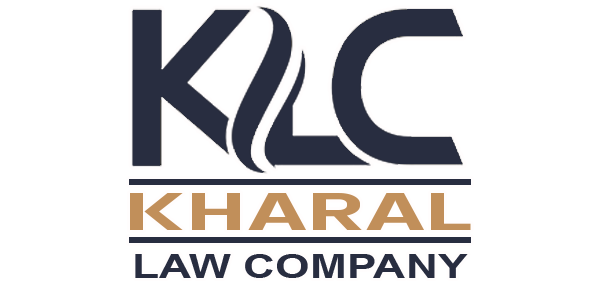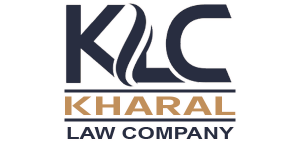Content
An addict will focus almost exclusively on the substance of abuse. The enabler subconsciously uses the emergency situations created by the addiction to get noticed, feel important and participate in the relationship. The desire for helping others, particularly the people who are close to your heart, is a noble human instinct.
However, for every young adult who is suffering from addiction, there is a parent out there wondering how they can help. Many will fall into codependent behaviors in an effort to keep their child safe, but this may only prolong a child’s addiction. Although this can be a devastating and terrifying experience for any parent, it is important to learn the difference in enabling and helping.
How Do You Care for Yourself When a Loved One Has a Substance Use Disorder?
Denying the issue can create challenges for you and your loved one. You might tell yourself this behavior isn’t so bad or convince yourself they wouldn’t do those things if not for addiction. But after thinking about it, you may begin to worry about their reaction. You might decide it’s better just to ignore the behavior or hide your money. You might let your teen avoid chores so they can “have time to be a kid.” But a young adult who doesn’t know how to do laundry or wash dishes will have a hard time on their own.
What is a negative enabler?
Negative. In a negative sense, "enabling" can describe dysfunctional behavior approaches that are intended to help resolve a specific problem but in fact may perpetuate or exacerbate the problem.
As many as 2 out of every 3 children affected by ADHD continue to have symptoms well into adulthood. This includes inattention, hyperactivity, and impulsivity – which are the key behaviors of those with ADHD. Rushing in to rescue someone may satisfy a personal desire to feel needed, but it doesn’t really help the situation. It only enables the person to avoid the consequences of their actions. Enabling is defined as doing things for a person with an alcohol problem that they normally could and would do for themselves if they were sober.
Colorado’s Rural Communities Offer Stark Evidence of Factors Reducing the Nation’s Life Expectancy
This may be hard at first, especially if your loved one gets angry with you. Do any of the above signs seem similar to patterns that have developed in your relationship with a loved one? These suggestions can help you learn how to empower your loved one instead.
When a parent is an enabler?
What is an enabler? This is essentially anyone who makes it easier for an addict to obtain or use their substance of choice or doesn't allow the person to face consequences. In the case of the parent, this usually means looking the other way while their child uses drugs or alcohol.
Do you clean up after your http://www.4400tv.ru/guest.php?div=index&page=16 one’s messes, literally and figuratively? Do you defend your child in difficult situations, such as when Do you lie or cover for your son or daughter, when he/she is too intoxicated to go to work or a family party? An enabler will make excuses to keep the peace, to shield off potential consequences, and to give off a calm, collected façade in front of others. When we enable addicts, children, friends or family, we are preventing them from experiencing the consequences of their own actions. We are not only preventing them from realizing they have a problem, but we are also depriving them of fully reaching their own potential.
Avoiding the issue
You may choose to believe them or agree without really believing them. You might even insist to other http://www.seu.ru/projects/eng/tulenie/tuleni3.htm or friends that everything’s fine while struggling to accept this version of truth for yourself. Know that you don’t have to cope with this situation alone. A treatment facility paid to have their center promoted here. A survivor of addiction himself, David Hampton is a Certified Professional Recovery Coach and a member of the National Association of Alcohol and Drug Abuse Counselors . We may receive advertising fees if you follow links to promoted online therapy websites.
In some cases, an enabler may decide to blame another member of the family or the person’s close friend for the individual’s behavior. Look for an accredited facility that offers evidence-based programming aligned with your child’s specific circumstances. For instance, do you believe your child might have other co-morbid mental health issues such as depression or anxiety? Seek a program that has the capacity to address mental health disorders as well as addiction. Many wonder what the difference is between addiction and substance abuse.
Common Traits of an Enabler
When worried about the consequences of a loved one’s actions, it’s only natural to want to help them out by protecting them from those consequences. Even if you personally disagree with a loved one’s behavior, you might ignore it for any number of reasons. You need to think about the health of your loved one, and the potential that their addiction could prove fatal if left unchecked. If you’ve been enabling all along, you need to accept the fact that you’ve been hiding the person’s behavior and blaming others for behavioral changes.
- Doctors suggest deep breathing and positive self-talk as the first steps in helping manage anger.
- Every family member must be on board with learning to stop enabling the addict.
- Anything that you do that does protect the alcoholic or addict from the consequences of their actions could be enabling him to delay a decision to get help for their problem.
- There are many options for treatment and rehab to address a person’s individual needs.
While inpatient programs can be quite costly, some situations require a higher level of care and supervision. We publish material that is researched, cited, edited and reviewed by licensed medical professionals. The information we provide is not intended to be a substitute for professional medical advice, diagnosis or treatment. It should not be used in place of the advice of your physician or other qualified healthcare provider. Recovery is a lifelong commitment for addicts and their families. If family members are not careful, they may trigger arelapse in the person in recovery. Families need to commit to attending therapy sessions with their loved one, where they will learn new and healthy ways to communicate and interact.
The Pros and Cons of Caffeine in Addiction Recovery
Sometimes, families do what they can to hide a loved one’s addiction. They might provide an alibi for why someone missed work or give money to the person who is using drugs to make sure they can afford rent or other necessities. Some families even go so far as to allow the drug dependency to dictate when they can or cannot do something. You must be firm with your loved one and refuse them the kinds of support that enable their drug use. Parents who are codependent often take responsibility for the actions of their addicted child in an attempt to keep them safe.


